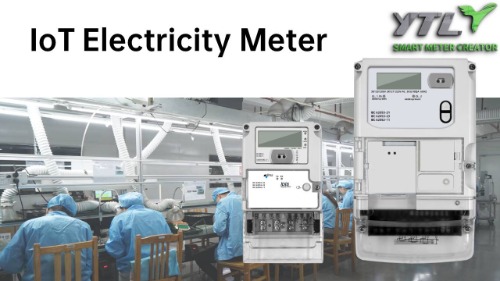 Energy meters are an essential part of modern living. They play a crucial role in measuring the amount of electricity consumed in homes, buildings, and industries. Energy meters work by monitoring how much electricity flows through them and recording this information for future use. There are different types of energy meters available in the market, and their functionalities vary based on their design and purpose.
Energy meters are an essential part of modern living. They play a crucial role in measuring the amount of electricity consumed in homes, buildings, and industries. Energy meters work by monitoring how much electricity flows through them and recording this information for future use. There are different types of energy meters available in the market, and their functionalities vary based on their design and purpose.
The type of energy meter is an electromechanical meter. It is also known as an analog meter. Electromechanical meters work by using a rotating disc that turns at a speed proportional to the amount of electricity being consumed. These meters display the amount of energy consumed in kilowatt-hours (kWh) using a mechanical dial. Analog meters are being phased out in many countries due to their limited accuracy and inability to record comprehensive energy consumption data.
The second type of energy meter is an electronic meter. Unlike analog meters, electronic meters utilize digital technology to measure and record energy consumption. Electronic meters can accurately measure power factors, demand, and other parameters. They also provide information about the time and date when the power was consumed. Electronic meters have been widely adopted by many utilities because of their high accuracy and reliability.

The third type of energy meter is a smart meter. Smart meters are the latest type of energy meter and are becoming increasingly common in households and businesses worldwide. Smart meters work by sending energy consumption data directly to the utility company via wireless communication. These meters allow for remote management of energy consumption, giving customers greater control over their energy use and enabling utilities to optimize the distribution of energy. Smart meters also provide real-time monitoring of energy usage, which allows consumers to adjust their energy consumption and minimize bills.

Energy meters are crucial in managing energy resources and ensuring sustainable use. They help to monitor energy consumption accurately, allowing for effective energy management strategies. Energy meters have revolutionized the way we consume and manage energy, giving us greater control over our utility bills and environmental impact.
In conclusion, energy meters are essential components of modern energy systems. There are various types of energy meters available in the market, each with specific functionalities and importance. The advancement in technology has led to the creation of smart meters that have transformed the way we consume and manage energy resources. As the demand for energy grows, energy meters will continue to play a crucial role in ensuring sustainable energy usage.

 English
English 中文简体
中文简体
.png?imageView2/2/w/500/h/500/format/png/q/100)













